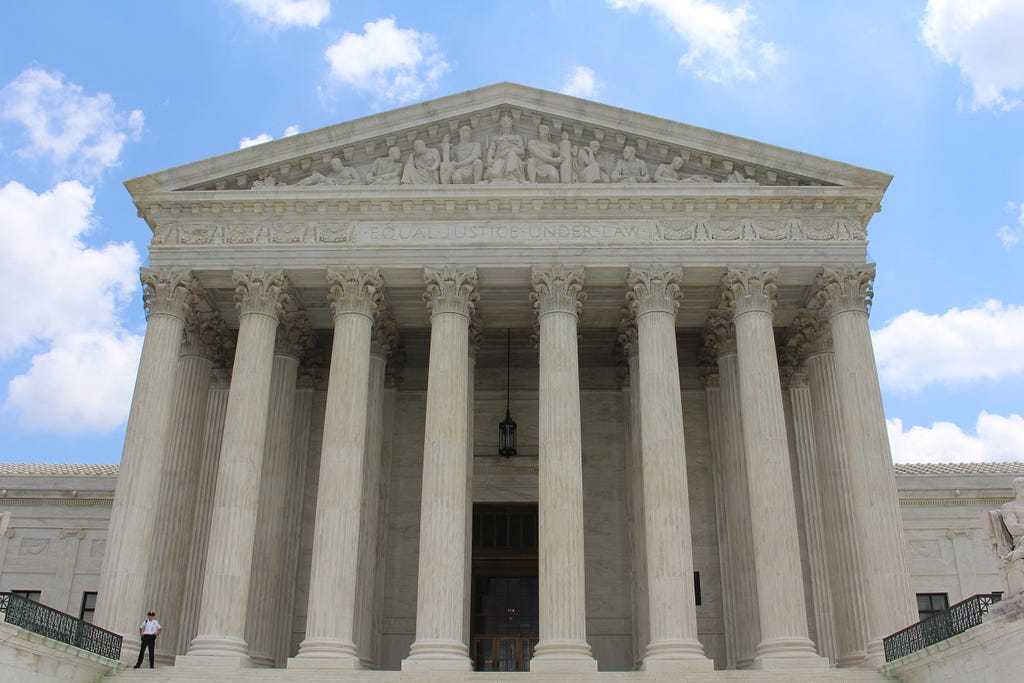Latest news about Bitcoin and all cryptocurrencies. Your daily crypto news habit.

It seems that our world is entering a very dangerous time. Regardless of one’s political views, it is impossible to ignore the growing dangers stemming from modernization. With the increased presence of technology in everyday life, governments are able to intrude on personal privacy through internet histories, social media, cell phone data and more.
China recently made news by announcing the implementation of a “social capital” system, which consists of digitally tracked data points that will determine the liberties one will have in day-to-day life.
However, technology can also be used to improve popular rule, rather than threaten it, and one blockchain start-up is committed to this idea. Agora, a project spun out of EPFL’s Swiss Lab for Digital Democracy, has created a blockchain voting platform dedicated to ensuring transparent and verifiable elections around the world.
Democratic elections in the 21st century are not only a feat of political achievement, but also of logistical and bureaucratic organization. The efficient and timely processing of millions of votes can be a challenging undertaking, with hurdles that arise in both paper ballot and electronic voting processes. Security around ballots and polling stations is another considerable challenge.
With these modern issues in mind, blockchain technology is uniquely suited to serve the interests of a modern democracy and its voting needs. Agora, in particular, offers a comprehensive technological offering to any state that seeks to implement a secure and fair election.
Currently, digital voting is plagued by flawed Electronic Voting Machines, or EVMs. These EVMs, as elections around the US and the world in the past few years have proved, are highly fallible. Indeed, at a tech conference just last year, engineers were able to hack a standard US voting machine in just over an hour.
Security vulnerabilities are not just applicable to single machines, either, as electronic voting architectures often utilize more centralized tally and control systems. A single hacked EVM may not swing an election, but a server where a millions of votes are stored could be compromised by increasingly sophisticated hackers.
This is why the decentralization, security and traceability offered by Agora’s technology is more vital now than ever. Operating through a multi-layered blockchain architecture, Agora has the ability to improve upon and protect against each of the weaknesses present in current EVMs. Agora could be the tool that democracies use to transport their elections into the digital age.
Agora Brings Transparency and Security to Voting
By moving to a digital solution, governments can remove elements that often slow down and negatively affect democratic participation. Paper ballots and election employees, for example, are a high expense item in paper elections. These costs can cause election officials to reduce the number of voting locations, which increases the time it takes for some voters to participate. Even once an individual has arrived at a voting location, wait times can stretch many hours as a result of overcrowding. This issue can cause many potential voters to simply decline to vote.
Over the long run, electronic voting on Agora’s platform from one’s own personal device would allow millions of voters to access their ballot from their work or home, causing an expansion in voter turnout. While previously contemplated remote voting technologies have sacrificed privacy, Agora’s technology assures anonymity through its ballot anonymization algorithm.
In addition to this aforementioned convenience, Agora’s technology could solve one of the greatest dangers facing democracy today: security. With an immutable blockchain that distributes voting data across many nodes, Agora provides a publicly auditable data trail that cryptographically proves an election remains untampered.
In addition to its proprietary blockchain, Agora’s Cotena layer copies periodic snapshots of lower layers of Agora’s network to the Bitcoin blockchain to provide immutable security to all voting data. Altering data is only as possible as hacking the Bitcoin network itself, which does not presently seem likely to occur.
Finally, one of the most revolutionary aspects of Agora is its network’s ability to be audited by third parties and voters themselves. Politically-motivated recounts may vanish, as anyone can audit an election and monitor the results. This open and transparent level of democracy could be transformative.
For these reasons, Agora could be the future of election security.
March 2018: Test Pilot in the Sierra Leone 2018 Presidential Election
In March 2018, Agora deployed its digital voting platform in Sierra Leone’s presidential elections. The process ensured that each vote was unique, secure and logged on Agora’s immutable blockchain.
This election highlights just how important transparency is in voting. Agora’s involvement in Sierra Leone provides legitimacy to their election results and the country’s democratic process, in general.
Agora and its innovative use of blockchain technology is coming at a key time in global politics. Democracies seem to be under attack not only in practice, but ideologically too, as some governments suggest that democracy is inefficient and prone to disruption. Agora could allow democracies to protect themselves from these threats, while maintaining a defensible political system.
Disclosure:
The author has had a working or personal relationship with one or more companies mentioned in this article in the past. Access to mentioned company’s management and information was made through the author’s personal network. All information was vetted prior to posting.
Disclaimer:
This essay is not intended to be a source of investment, financial, technical, tax, or legal advice. All of this content is for informational purposes only.
How Agora Will Use Blockchain to Bring True Democracy to the World was originally published in Hacker Noon on Medium, where people are continuing the conversation by highlighting and responding to this story.
Disclaimer
The views and opinions expressed in this article are solely those of the authors and do not reflect the views of Bitcoin Insider. Every investment and trading move involves risk - this is especially true for cryptocurrencies given their volatility. We strongly advise our readers to conduct their own research when making a decision.